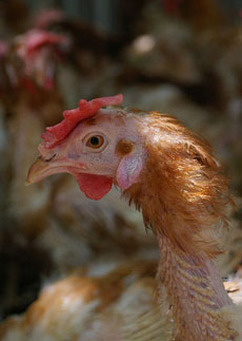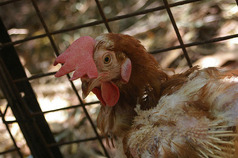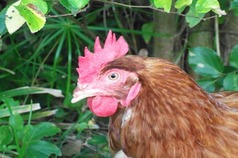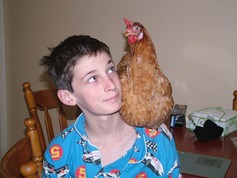|
|
Caring for your hensOnce out of the cages, ex-battery hens adapt very quickly to a normal environment. Within a few hours they will be pecking at things, scratching at the ground, rolling in the dirt for a dust bath, stretching their wings open to the sun and just doing normal chicken activities.
They are often a bit nervous of movement, it can take a few days for the hens to get use to things such as tree branches swaying in the breeze or leaves blowing around as well as everyday noises like traffic or dogs barking. Before taking your hens home you need to set up a predator proof coop with, preferably, A floor made of concrete pavers or a concrete slab. Not only will this stop foxes and dogs digging in but it is also easy to keep clean. Even if you have never seen a fox, there are foxes out there, even in built up suburban areas. The hens may or may not perch. Often they prefer to sleep on the ground so initially you do not need to provide them with perches. When you first let your hens out of the coop give them a small area to walk around in and explore. If you let them free range in a large area they may get disorientated and feel quite frightened. It’s better to start with small steps because EVERYTHING is new to them. Most hens settle in quite quickly but it is best not to handle them or spend too much time “fussing” with them for the first few days, but you do need to keep checking them to make sure they are alright, just a quick look in to the coop to make sure they are all OK. Try to keep other animals, like barking dogs, away from the coop if possible. To start with feed your hens commercial chicken pellets. We recommend Lucky Layer Free Range Vegetarian Pellets. They love these pellets! Make sure each hen knows where the food and water is. They have never had to find food and water before. Jiggling your finger in the water often gives them the idea. Check to make sure each hen is drinking and eating. Pick up any droppings from the straw every day and always make sure they have a fresh supply of food and water. |




